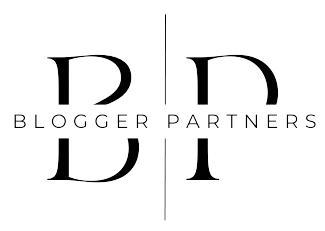To establish an education consultancy, you need to set clear goals and objectives. Undergoing market research helps to identify your audience and competitors as well as stay abreast of industry trends.
Success in any industry demands possessing both hard and soft skills; soft skills refer to personal qualities learned from experience while hard skills refer specifically to job responsibilities.
Educators Need Help
As educators integrate new technologies into classrooms, they need help to navigate all of the available resources. Education consultant offer advice and guidance while also connecting them with students and parents. Education consultants tend to be detail-oriented professionals with outstanding written and verbal communication skills – many having years of experience working within private or public schools as well as universities or colleges.
Aspiring educational consultants may take time to establish themselves within the industry. The first step should be identifying a specialty area, such as helping high school students navigate college selection and admission processes or offering financial aid advice. Joining professional organizations such as Independent Educational Consultants Association (IECA), which offer insurance, professional development opportunities, tools discounts and current information on relevant topics is also recommended.
Once an individual has identified their specialty, they should work on building up their portfolio of work samples. These may include blog articles and social media posts as well as teaching a college class related to it. It would also be beneficial if they created an accessible website featuring their work as well as contact details so potential clients could contact them easily.
School Districts Need Experts
Schools and districts enlist consultants to address both short-term needs and long-term strategic initiatives. Often these consultants specialize in one aspect of education – be it creating new techniques for reading instruction or streamlining district budgets – with many having also served as teachers or administrators themselves and have years of classroom experience.
To be a successful educational consultant, it is necessary to establish yourself as an authority on a particular niche area. This can include creating a website and social media profiles which communicate your expertise. Network with fellow educators and potential clients while attending industry events; join professional organizations like Independent Educational Consultants Association (IECA). Doing this will increase visibility while offering insurance benefits, development opportunities, and tool discounts – essential ingredients for success as an independent educational consultant.
Start building experience as an education consultant by volunteering in counseling offices of local high schools or working at nonprofit organizations that assist college-bound students plan for college. Also consider volunteering tutor children or acting as student ambassador at universities; such experiences will give you valuable insights into education while equipping you for the responsibilities associated with your new career. Relationship building with existing and potential clients is crucial in order to maintain loyalty that leads to repeat business and referrals.
Educators Need Resources
Education consultants play an invaluable role in helping educators locate resources to bolster their classrooms and connecting educators with innovative educational technology (ed-tech) solutions that enhance learning experiences.
Education consultants often begin their careers by working within the educational sector – either as teachers themselves, volunteers in schools or tutors for private tuition companies, etc. This experience allows them to better understand the challenges educators face, while developing ideas on how they could improve the system overall.
Education consultants typically possess at least a bachelor’s degree in education or related field. This degree equips them with the necessary skills and knowledge needed to make a positive contribution to educational industry, and may include postgraduate qualifications specific to their specialty areas.
Once they possess all of the qualifications and skills required to become an education consultant, they should focus on branding themselves and developing a business plan. This will help build their reputation and draw clients. Furthermore, joining professional organizations such as Independent Educational Consultants Association or Higher Education Consultants Association may give them a competitive edge and access to numerous benefits including insurance policies, professional development opportunities, tool discounts and much more.
Educators Need Support
Teachers require support due to numerous challenges they are currently facing in schools, such as increasing student diversity and using digital tools in the classroom, along with an influx of new teachers entering schools. Furthermore, educators require assistance in the form of curriculum development and effective teaching methodologies.
As such, educators frequently rely on educational consultants for advice and guidance. Some of these individuals specialize in specific subject areas or grade spans, often working closely with educators to deliver professional development through keynote speeches or small-group breakout sessions. Others provide more comprehensive services like reviewing data or strategic plans or helping build positive school culture initiatives to foster positive behaviors.
Other education consultants work directly with both students and their families. These individuals help match a child to the ideal learning environment – be it public, private, or boarding schools – and assist with college selection/application procedures.
Anyone aspiring to become an education consultant should pursue either a master’s or doctorate degree in their area of specialization, join an associated professional organization and build networks with fellow educators, keeping abreast of recent trends within the field and create a website which showcases content pertinent to their specialty and work while developing strong social media profiles can help promote business and find potential clients.

